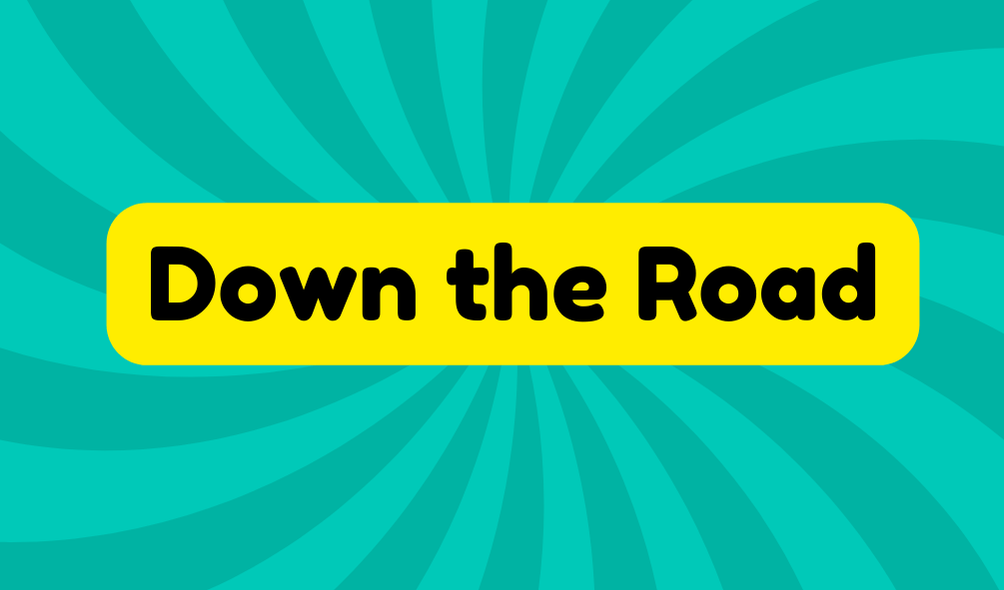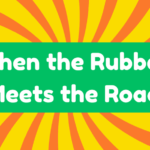"Down the road" refers to future outcomes or possibilities, often emphasizing the need for planning. It originated in the early 1800s, with roots in the metaphor of life's journey. When you say, "Decisions made today will affect you down the road," it captures the essence of long-term thinking. This phrase reminds you that today's choices shape tomorrow's realities. Often, people overlook its significance, rushing into decisions without considering future implications. Using it in phrases like "opportunities down the road" highlights importance. If you're curious about its broader impact and usage, there's definitely more to explore ahead.
Synonyms
When you think about the phrase "down the road," a few effective synonyms come to mind that capture its essence. These alternatives reflect the concept of planning for future events and the inevitable future consequences of your decisions—especially when considering the risk of job dismissal.
- In the future: This emphasizes a timeline that holds unknown challenges.
- Long-term: It highlights the extended nature of choices and their outcomes.
- Down the line: A colloquial way of indicating uncertainty about when things might unfold.
These synonyms remind you that every action you take today can shape your career path down the road, possibly leading to unexpected opportunities or setbacks. So, be mindful of your choices.
Example of Sentences
Using the phrase "down the road" can effectively convey future expectations or consequences in various contexts. By employing this idiomatic expression, you can highlight future implications in your conversations or writing. Here are some examples:
- "Down the road, we might see significant advancements in technology."
- "You should consider how your decisions today shape outcomes down the road."
- "The project will bring challenges that need addressing down the road."
These sentences illustrate how the phrase serves as a reminder to keep long-term consequences in mind. While it's tempting to focus solely on the present, recognizing what lies ahead can help you make thoughtful choices. Incorporating such idioms enhances communication, allowing you to convey your ideas more effectively.
Origin
The origin of the phrase "down the road" dates back to the early 1800s, with its earliest printed usage traced to a poem by George Wither in 1622. This idiomatic expression cleverly connects to metaphorical language about road travel. It symbolizes life as a journey, revealing a cultural preference for foresight in decision-making. While it seems innocent, you should be cautious about taking such phrases at face value. They can oversimplify complex situations. By the 19th century, it became part of everyday language, reflecting how we often think about our futures. However, relying solely on these expressions can lead to misinterpretation of long-term outcomes. Always question the context to appreciate the depth behind these seemingly simple phrases.
Collocations
Collocations related to "down the road" often enhance its meaning in various contexts. By incorporating these phrases, you can clarify your intent while envisioning that metaphorical journey into the future. Think about how certain phrases resonate with future prospects and shape your communication.
- "Planning down the road" emphasizes foresight in decision-making.
- "Opportunities down the road" highlights potential growth and development.
- "Challenges down the road" prepares you for inevitable obstacles.
These expressions aren't just filler; they're essential for steering conversations about what lies ahead. They encourage a realistic lens on future situations, reminding you to maintain perspective. Embracing them fosters an understanding that while the future is unpredictable, preparation can pave the way for better outcomes.
How to Use in Everyday Language
In conversations about future plans, "down the road" serves as a useful phrase to convey your thoughts clearly. While it can sound casual, using it thoughtfully might improve your decision-making strategies. When discussing future implications—whether in career, finance, or personal life—this phrase keeps the focus on what lies ahead. Instead of getting lost in immediate concerns, it encourages a long-term vision. For instance, when planning a project, you could say, "Let's consider the outcomes down the road." Remember, it's essential to balance optimism with realism. While envisioning the future is crucial, it's equally important to acknowledge potential hurdles. By doing so, you create practical strategies that guide your journey effectively and realistically.
Why Is It Still Relevant Today?
Understanding the concept of thinking ahead makes "down the road" particularly relevant today. As you navigate a world that demands future planning, this phrase serves as a reminder to reflect on the long-term impacts of your choices. In an age of rapid technological advancements, failing to think ahead can lead to missed opportunities. You might find that your innovative ideas become obsolete without foresight. The idiomatic evolution of "down the road" reflects our society's increasing awareness of future consequences. By grasping this concept, you can better align your strategies and decisions with your goals. It's essential to embrace this mindset, acknowledging that today's decisions shape tomorrow's realities, ultimately steering your journey in unexpected and exciting directions.







